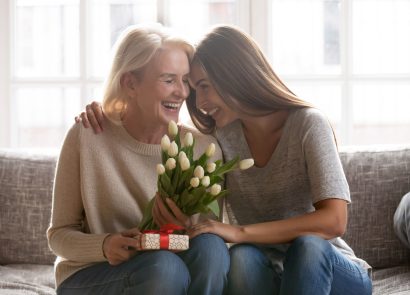If you ever feel guilty for playing about – maybe snatching a quick Wordle break between work tasks or running a finger around in spilled sugar while you wait for the kettle to boil – please don’t. Time spent at play has long been valued for its vital role in child development, and now researchers are increasingly convinced of its importance for us adults, too.
Playfulness has long been taken very seriously at Martin-Luther-Universität Halle- Wittenberg (MLU) in Germany, where research has found people with a playful approach to life are less stressed and have a more positive outlook on difficult events. Play can help our relationships too; last year MLU researcher Kay Bruer laid out in an academic journal how both his team’s own lab work and existing studies reveal the contribution playfulness can make to our love lives. “Playful behaviours such as surprising the partner, retelling and reenacting joint experiences with the partner or jointly forming new experiences often contribute to the happiness and longevity of relationships,” he reported. Other centres of research have proven a playful approach can enhance adult learning and boost job satisfaction, and that playing games, whether traditional or digital, can even improve the cognitive performance in adults with Alzheimer’s. So, play is good… but are we getting enough of it?
“Many adults play in daily life,” says Lucy Llewellyn, a play therapist registered by the British Association of Play Therapists (bapt.uk.com). “I think most do, but maybe don’t recognise it as play. Singing and dancing, experimenting and building in the garden, climbing and jumping, listening to the birds; doing something that you enjoy with no particular goal. I’m no cook but I love a packet of bread mix. The rolling, bashing and pounding… it’s adult play.” For Lucy, it’s no coincidence that sensory activities like lighting scented candles, working sticky sourdough and knitting have grown in popularity amid the overwhelm many have experienced throughout the pandemic. “We have a lot stored that’s not in the verbal realm, for example what it’s like to live in this dystopian Covid world,” she suggests. “There’s a lot buried deep inside us but we don’t always have the words to express it. Play, especially sensory play, helps free things up; strands just unfold like a ball of wool. In play therapy you don’t need to make sense of those separate threads but you start making connections yourself.”
Lucy cites the words of renowned neuroscientist Dr Bruce Perry, who describes how traumatic experiences alter neural networks in the brain, making it hard for traditional talking therapies to ‘get at’ problems and create positive change. “The beauty of play is that it engages these widespread networks in controllable, predictable and moderate ways,” he has said. “Play engages sensory, motor, emotional and cognitive systems.” Put another way, our primal instincts to play with clay, sand and paint, or even music, song and drama, can be more helpful and more healing in addressing our difficulties than engaging our thinking power alone.
And it’s not just those of us who have experienced trauma who need play. Lucy believes building more play into our lives can benefit everyone. “We do stop playing as we get older,” she says. “We don’t have that thing of just hanging out and having fun just for the sake of it.” So how do we develop a more playful mindset? “I often tell people not to worry about making mistakes, and to embrace happy accidents,” says artist Jacqueline Davies (jacquelinedaviesart.com), who runs workshops helping adults and children discover their inner creativity, and has studied the Reggio Emilia approach to learning. “Applied to something like printmaking, the ethos is to focus on the whole process, not the product at the end,” she says. “It’s about being in the moment: learning new techniques and losing yourself in what you’re doing means you’re not focused on perfect outcomes.”
For many of us playing around is something we only feel empowered to do in the company of children or pets, when we feel it’s socially acceptable, but like Jacqueline, Lucy has witnessed adults overcome their reluctance in organised group settings. “We often deny ourselves access to playful things or mess-making activities, so sometimes when they are provided we feel more able to engage,” she says. “I have run women’s mental health groups where we will do craft activities, or even just making swirly patterns in silky cornflower and water mixture. People start saying ‘I was never allowed to get dirty as a child’ or ‘My partner hates mess’.” Memories and thoughts emerge unbidden, bonding groups and building the kind of close relationships enjoyed by sporting teams. An environment that builds trust is important; “You can only play when you feel emotionally safe,” says Lucy.
The good news is that MLU’s researchers have found playfulness is like a muscle: we can train ourselves to be more playful and consequently feel more fulfilled and satisfied in our daily lives. Some participants in a 2020 study were asked to reflect on their day before going to bed, record moments of play or their own playful behaviour in their day. The results? A boost in their playfulness and feelings of wellbeing. Time to reach for that bread mix, maybe…
Find your play…
…on your own
“You need ice breakers to get yourself started,” says artist Jacqueline. “If you’re going to start painting don’t pick up a canvas; pick up a leaf or if you’re working on paper screw it up first or rip the corners off. Make sure it’s not precious. Don’t put pressure on yourself.”
…with the family
Take a note from the ‘filial therapy’ playbook, which tutors adults in child-led play. “Sometimes the dynamic at home gets so tense it’s like a war zone,” says Lucy. “Prioritising play with a 30-minute date each week to play with children creates a shared experience of doing something nice together; it really changes the dynamic.”
…out and about
Finding playful, fun activities focused around enjoyment rather than results is unlocking sport and games for a whole new wave of women. Discover ideas – including dance-alongs, quidditch, roller derby and dragon boat racing – and inspiration at thisgirlcan.co.uk




















